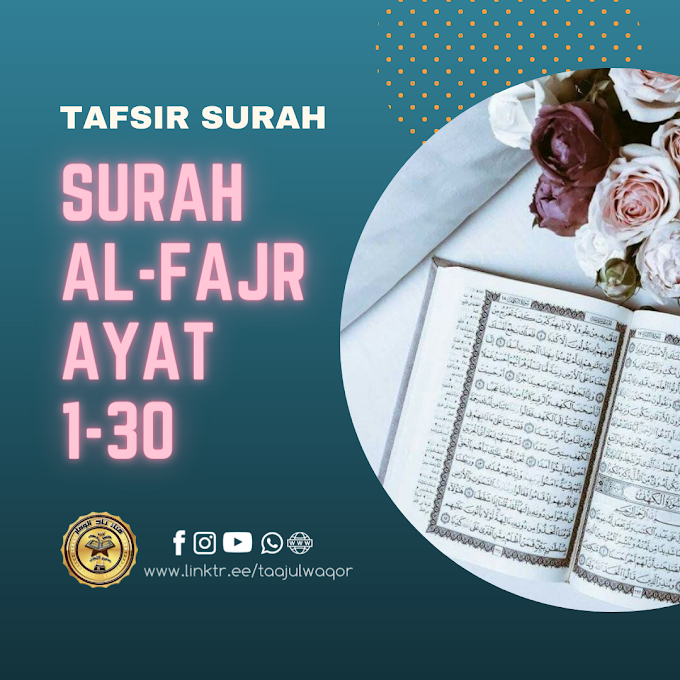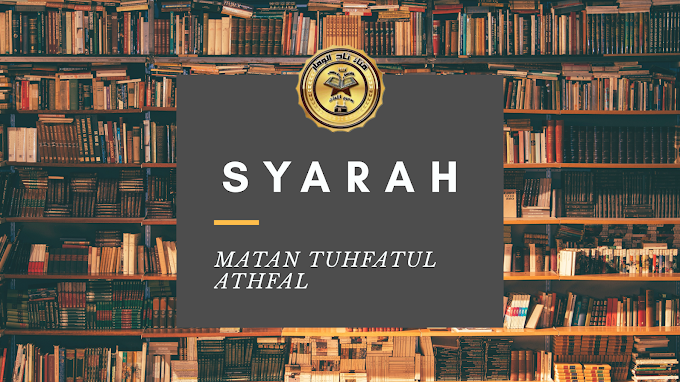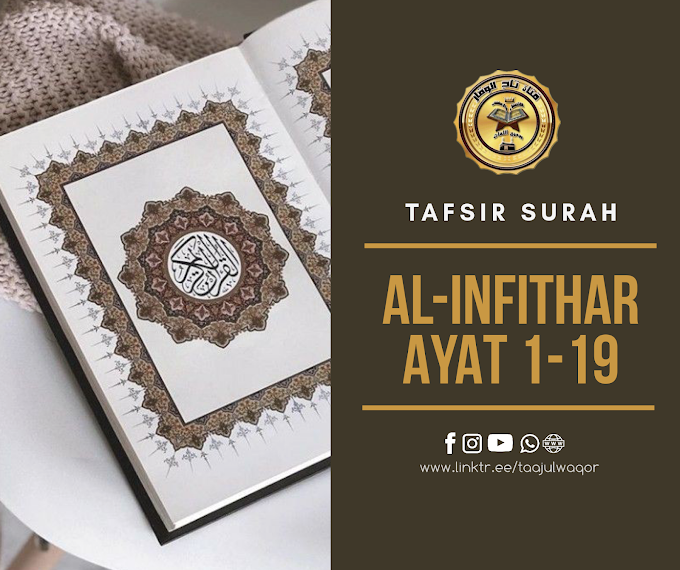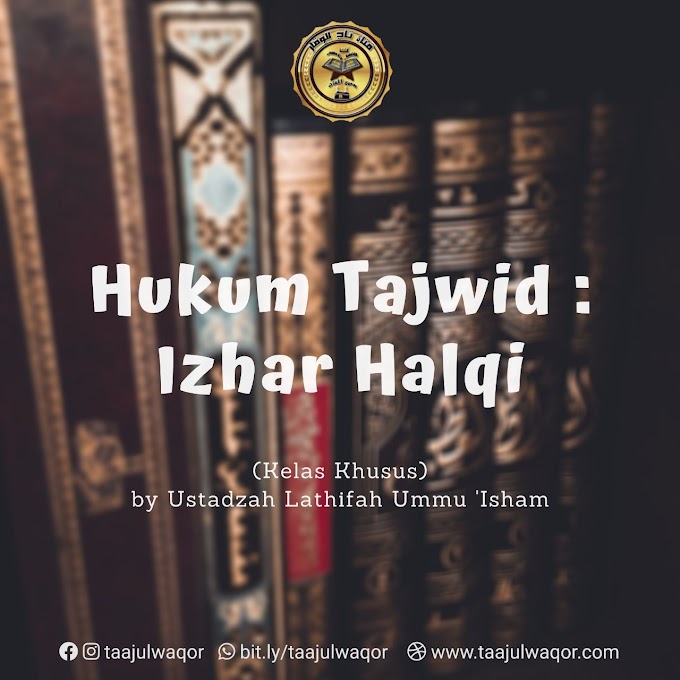- بسم الله الرحمن الرحيم -
🌸TADABBUR JUZ 'AMMA🌸
Teacher: Ustadha Maha, حفظها لله
🌿🌷🌿🌷🌿🌷🌿🌷🌿🌷🌿
Surah Al-Ghashiyah, this is one of the names of the Day of Judgement. It contains 26 Ayat (verses). It is called "Hal Ataka Haditho Alghachiya", "Hal Atak".
The prophet used to make salat Aid with this surat. This Surat starts with a question:
✒️Al-Ghashiyah: 1
هَلْ أَتَىٰكَ حَدِيثُ ٱلْغَٰشِيَةِ
"Has there come to you the narration of Al-Ghashiyah (the overwhelming)?"
The Day of Judgement and what will happen to the People of the Fire during it. Al-Ghashiyah is one of the names of the Day of Judgement. Ghachiya because it covers human beings minds as they will be totally unable to think of anything.
✒️Al-Ghashiyah: 2
وُجُوهٌ يَوْمَئِذٍ خَٰشِعَةٌ
"[Some] faces, that Day, will be humbled,"
(Some faces that Day will be Khashi'ah). Meaning, humiliated. Here it's dealing with Koffar.
Ibn 'Abbas said, "They will be humble but this action will be of no benefit to them"
✒️Al-Ghashiyah: 3
عَامِلَةٌ نَّاصِبَةٌ
"Working [hard] and exhausted."
Laboring, weary. Meaning, they did many deeds and became weary in their performance. But they will be cast into a blazing Fire on the Day of Judgement.
Sa'adi said, in the hereafter they were working but in vain, they won't be rewarded in Akhira. The first meaning is the most accepted.
✒️Al-Ghashiyah: 4
تَصْلَىٰ نَارًا حَامِيَةً
"They will [enter to] burn in an intensely hot Fire."
They will enter into Fire, Hamiyah. (Hamiyah) meaning, hot with intense heat. The prophet said that the fire of dunya is just is one segment of 70 segments/parts of hereafter fire.
✒️Al-Ghashiyah: 5
تُسْقَىٰ مِنْ عَيْنٍ ءَانِيَةٍ
"They will be given to drink from a boiling spring."
(Aniyah) meaning, its heat has reached its maximum limit and boiling point. Allah, after talking about drink of People of firehell, moved to their food.
✒️Al-Ghashiyah: 6
لَّيْسَ لَهُمْ طَعَامٌ إِلَّا مِن ضَرِيعٍ
"For them there will be no food except from a poisonous, thorny plant"
Ibn 'Abbas that he said, "A tree from the Hellfire."
No food will there be for them but from Dhorii' (ضَرِيعٌ). Dhorii' is what's known in dunya as "الشِّبْرِقُ". It's a plant which contains poison. This is of the worst, most disgusting and loathsome of foods.
✒️Al-Ghashiyah: 7
لَّا يُسْمِنُ وَلَا يُغْنِى مِن جُوعٍ
"Which neither nourishes nor avails against hunger."
This means that the intent in eating it will not be achieved, and nothing harmful will be repelled by it.
🌿🌿🌿
✒️Al-Ghashiyah: 8
وُجُوهٌ يَوْمَئِذٍ نَّاعِمَةٌ
"[Other] faces, that Day, will show pleasure."
After mentioning the situation of the wretched people, Allah changes the discussion to mention those who will be happy. The Condition of the People of Paradise on the Day of Judgement. Here Allah mentions a variety of food not like for Koffar just one kind of food is mentioned
(Faces that Day.) meaning, on the Day of Judgement.(Will be joyful,)
Here we notice the opposite meaning. This is usual in Quran, that's why it's said to be "mathani", it means it contains opposite words and meanings like Paradise and Hell, Evil and good deeds. Why? Because this, according to scholars, will put people in a situation between hope and fear. It also attracts people's attention in reading Quran and avoids boring them talking about the same issue.
✒️Al-Ghashiyah: 9
لِّسَعْيِهَا رَاضِيَةٌ
"With their effort [they are] satisfied"
Glad with their endeavor. They will be pleased with their deeds. (Will be joyful,) meaning, pleasure will be noticeable in them (those faces). This will only occur due to their striving.
The link between the two previous verses is that: Their faces will be joyful (physical appearance), and they be glad (deep inside).
✒️Al-Ghashiyah: 10
فِى جَنَّةٍ عَالِيَةٍ
"In an elevated garden,"
(In a lofty Paradise.) Meaning, elevated and brilliant, secure in their dwellings.
✒️Al-Ghashiyah: 11
لَّا تَسْمَعُ فِيهَا لَٰغِيَةً
"Wherein they will hear no unsuitable speech."
They not hear there in any Laugh, but only Salam. (Free from any Laugh and free from sin. No Laugh will they hear therein, nor any sinful speech. But only the saying of: "Salam! Salam!")
People of Paradise will making tasbih easily without any effort just like breathing.
✒️Al-Ghashiyah: 12
فِيهَا عَيْنٌ جَارِيَةٌ
"Within it is a flowing spring"
Meaning, flowing freely. This is mentioned with the intent of emphasizing affirmation. It is not intended to mean that there is only one spring. So here it refers to springs collectively. Thus, the meaning is that in it (Paradise) are flowing springs.
✒️Al-Ghashiyah: 13
فِيهَا سُرُرٌ مَّرْفُوعَةٌ
"Within it are couches raised high"
Meaning, lofty, delightful, numerous couches, with elevated ceilings. Upon which will be seated wide-eyed, beautiful maidens. They have mentioned that whenever the friend of Allah wishes to sit on these lofty thrones, they (the thrones) will lower themselves for him.
✒️Al-Ghashiyah: 14
وَأَكْوَابٌ مَّوْضُوعَةٌ
"And cups put in place"
Meaning, drinking containers that are prepared and presented for whoever among their masters (i.e., the people of Paradise) wants them.
✒️Al-Ghashiyah: 15
وَنَمَارِقُ مَصْفُوفَةٌ
"And cushions lined up"
(And Namariq set in rows.)
Ibn 'Abbas said, "An-Namariq are pillows." This was also said by 'Ikrimah, Qatadah, Ad-Dahhak, As-Suddi, Ath-Thawri and others. Concerning Allah's statement.
✒️Al-Ghashiyah: 16
وَزَرَابِىُّ مَبْثُوثَةٌ
"And carpets spread around."
(And Zaroobi, spread out (Mabthuthah)).
Ibn 'Abbas said, "Az-Zaroobi are carpets." This was also said by Ad-Dahhak and others. Here the word Mabthuthah means placed here and there for whoever would like to sit upon them.
The derailed description of paradise and hell is out of His Mercy towards us, this makes us work hard to enter Paradise and fear hell.
🌿🌿🌿
✒️Al-Ghashiyah: 17
أَفَلَا يَنظُرُونَ إِلَى ٱلْإِبِلِ كَيْفَ خُلِقَتْ
"Then do they not look at the camels - how they are created?"
Again another question here. Why camels? Because:
🍂It represents a great creation of Allah. Even the camel is so strong, it can be led by a little boy.
🍂Camels have so many benefits and advantages, more than other animals.
🍂Camels are very popular to Quraich people.
🍂Camel's creation is great,
Indeed it is an amazing creation, and the way it has been fashioned is strange. For it is extremely powerful and strong, yet gentle, carrying heavy loads. It allows itself to be guided by a weak rider. It is eaten, benefit is derived from its hair, and its milk is drunk. They are reminded of this because the most common domestic animal of the Arabs was the camel.
✒️Al-Ghashiyah: 18
وَإِلَى ٱلسَّمَآءِ كَيْفَ رُفِعَتْ
"And at the sky - how it is raised?"
Have they not looked at the heaven above them, how we have made it and adorned it and there are no rifts on it? Meaning, how Allah raised it in such magnificence above the ground.
Shurayh Al-Qadi used to say, "Come out with us, so that we may look at the camels and how they were created, and at the sky and how it has been raised."
✒️Al-Ghashiyah: 19
وَإِلَى ٱلْجِبَالِ كَيْفَ نُصِبَتْ
(And at the mountains, how they are rooted?)
Meaning, how they have been erected. For indeed they are firmly affixed so that the earth does not sway with its dwellers. And He made them with the benefits and minerals they contain.
✒️Al-Ghashiyah: 20
وَإِلَى ٱلْأَرْضِ كَيْفَ سُطِحَتْ
"And at the earth, how it is outspread?"
Meaning, how it has been spread out, extended and made smooth. This allows human beings to walk on it, to plant, etc.
The Exhortation to look at the Creation of the Camel, the Heaven, the Mountains and the Earth.
Allah commands His servants to look at His creations that prove His power and greatness.
Thus, He directs the bedouin to consider what he himself witnesses. His camel that he rides upon, the sky that is above his head, the mountain that faces him, and the earth that is under him, all of this is proof of the power of the Creator and Maker of these things. These things should lead him to see that He is the Lord, the Most Great, the Creator, the Owner, and the Controller of everything. Therefore, He is the God other than whom none deserves to be worshipped.
✒️Al-Ghashiyah: 21
فَذَكِّرْ إِنَّمَآ أَنتَ مُذَكِّرٌ
"So remind, [O Muhammad]; you are only a reminder."
(So remind them – you are only one who reminds. You are not a Musaytir over them). Meaning, "O Muhammad! Remind the people with what you have been sent with to them."
"Innama" this is a restriction meaning that the prophet is just sent to people to remind and warn them.
"Your duty is only to convey (the Message) and on Us is the reckoning." (13:40)
✒️Al-Ghashiyah: 22
لَّسْتَ عَلَيْهِم بِمُصَيْطِرٍ
"You are not over them a controller."
(You are not a Musaytir over them.)
Ibn 'Abbas, Mujahid and others said, "You are not a dictator over them." This means that you cannot create faith in their hearts.
Ibn Zayd said, "You are not the one who can force them to have faith. Here is a kind of consolation to the prophet."
🌟This Aya is also a consolation to anyone who makes da'wa and don't find those who listen to him. Our duty is to remind people and make da'wa, but guidance comes from Allah. This doesn't mean that we stop reminding them, it's our duty.
✒️Al-Ghashiyah: 23
إِلَّا مَن تَوَلَّىٰ وَكَفَرَ
"Save the one who turns away and disbelieves."
Meaning, he turns away from acting upon its pillars, and he disbelieves in the truth with his heart and his tongue.
✒️Al-Ghashiyah: 24
فَيُعَذِّبُهُ ٱللَّهُ ٱلْعَذَابَ ٱلْأَكْبَرَ
"Then Allah will punish him with the greatest punishment."
"So he neither believed nor prayed! But on the contrary, he belied and turn away!"
(75:31-32)
The greatest punishment. Here Allah didn't mention greater than what. Meaning it will be absolutely the Greatest.
✒️Al-Ghashiyah: 25
إِنَّ إِلَيْنَآ إِيَابَهُمْ
"Verily, to Us will be their return;"
Meaning, their place of return and their resort.
✒️Al-Ghashiyah: 26
ثُمَّ إِنَّ عَلَيْنَا حِسَابَهُم
"Then verily, for Us will be their reckoning."
Meaning, 'We will reckon their deeds for them and requite them for those deeds.' If they did good, they will receive good, and if they did evil, they will receive evil.
Here "ilayna" (to us) occurs before "iyabahom" to mean that this only goes to Allah, Allah Alone and only Him can reward us and to Allah we return. This Aya is recurrent in Quran. Allah will reward everyone according to his deeds.
🌟This Surat reminds us of the Day of judgement and calls us to prepare ourselves and get ready for this Day.
It shows the blessings of people of paradise, who will have inner and apparent blessings.
🌟The Surat also shows that da'a is a duty of each one of us but we are called to remind people. It calls for contemplation in what Allah created, this is an important act of worship.
🌟It reminds us of reward and punishment
So that we get ready for this, and work accordingly!
🌿🌷🌿🌷🌿🌷🌿🌷🌿🌷🌿
🕰️ 28 November 2020
📝 Translator: Wafa Chelgoum, حفظها الله








0 Comments